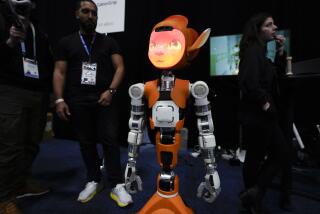Obscure start-ups — not tech’s biggest names — are taking advantage of CES
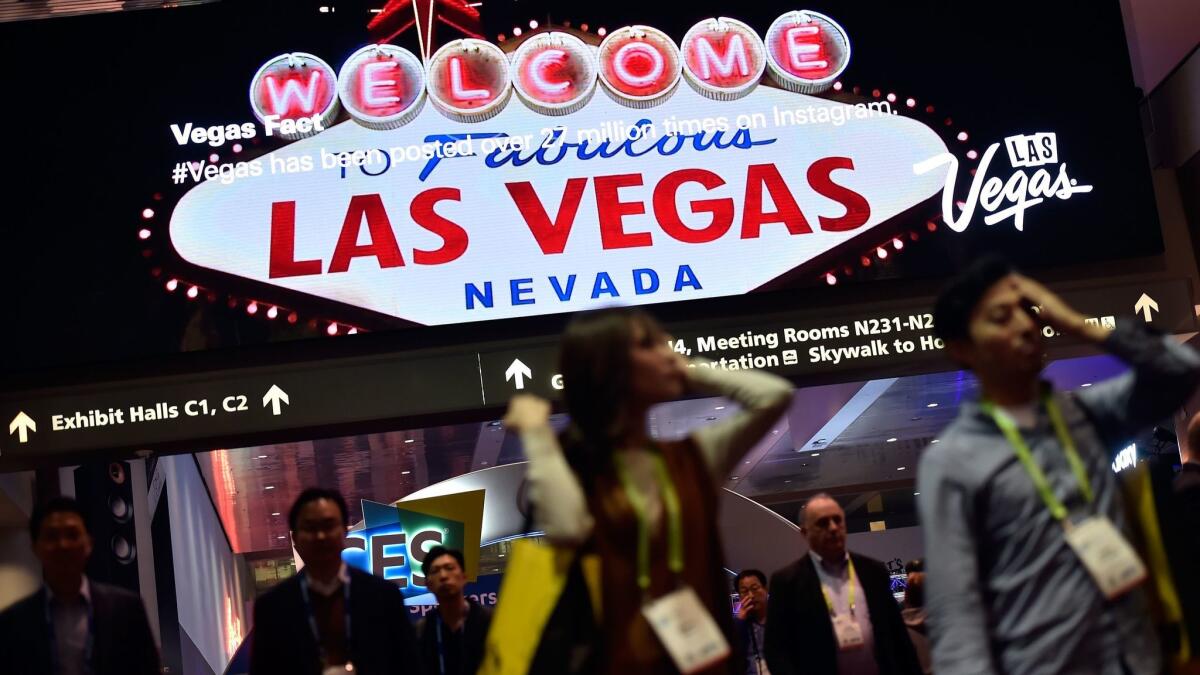
On any given day during the year, tech news is typically dominated by the Apples, Amazons, Facebooks and Googles of the world.
Not so every January, when CES descends on Las Vegas and attention turns for a few brief days to roughly 4,000 exhibiting companies, many of them little-known or completely unheard of start-ups.
Thanks to Apple co-founder Steve Jobs, who turned product announcements into glitzy productions, big tech companies have taken to launching their most important new products in isolated, single-company unveilings and developers conferences intended to drum up as much media frenzy as possible. Although some industry behemoths still attend CES — in a rare showing, Google has a big stand-alone booth this year — it’s not a time to roll out their hottest gadgets and initiatives.
That lets small start-ups and larger-but-less-sexy established companies take center stage. Whereas tech behemoths worry that premiering products at CES means they’ll get drowned out, for the little players, it’s a chance to get in front of prominent tech journalists and attempt to rise above the cacophony with their latest fitness gadgets, smart toothbrushes, cutesy robots and virtual reality headsets.
“What’s special about CES is that the whole world is here,” said Kyle Doerksen, chief executive of Future Motion, the creator of a one-wheeled skateboard-like device called Onewheel. “It’s an unparalleled opportunity to get the word out about what you’re building.”
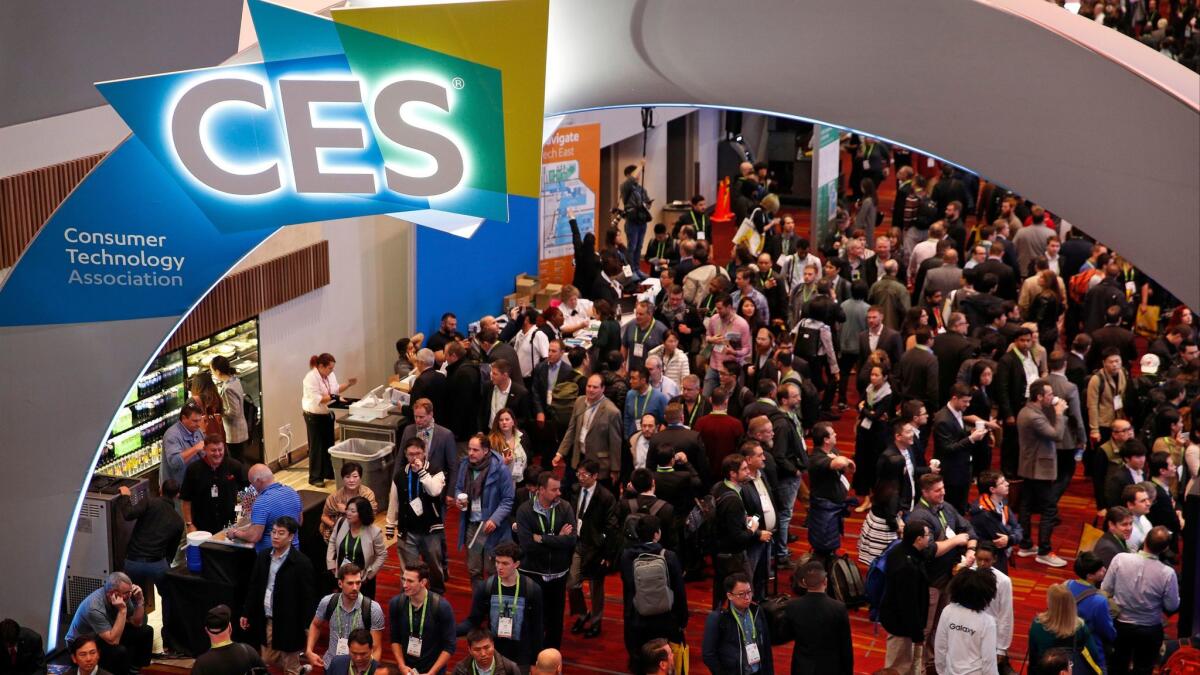
At CES, he said, the tables have turned because “the big companies are kind of like the wallpaper” while the start-ups are the ones that often have surprising products to show off.
“Everybody knows there’s going to be a bigger TV, a faster smartphone,” he said. So “it’s the little companies that end up getting a lot of air time.”
Jeremy Kenisky, creative vice president of Merge, said CES has given the virtual reality gaming company great exposure; attending the show last year led to a big surge in retail orders.
“Smaller companies can get on the same level” as bigger competitors at CES, he said.
Over the last decade, technologies such as drones, self-driving automobiles, artificial intelligence and smart speakers all premiered at CES, said Daniel Ives, head of technology research at GBH Insights. The trade show remains influential among investors, partners, buyers, and tech executives, who attend to “read the tea leaves,” Ives said.
“CES is a rite of passage for the technology industry, and it exists to identify the next generation of technologies that are going to change the ecosystem for consumers,” he said. “That’s why it’s always held at the start of the year — it sets the tone not just for the industry, but for Wall Street in terms of what to look out for.”
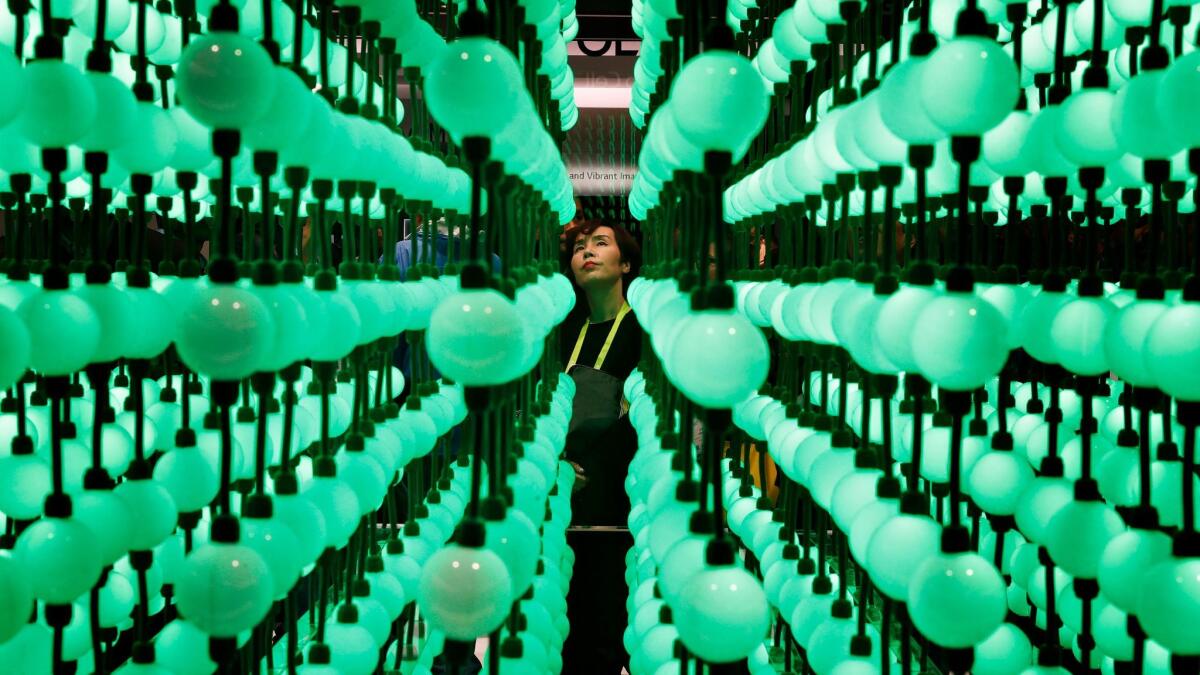
The show, which began Tuesday and runs through Friday, has seen its relevance wane since its heyday in the 1990s and early 2000s. The decision by many large companies to scale back their presence or pull out entirely changed the dynamic of CES, shifting the spotlight to smaller players.
In 2011, Microsoft announced that it would no longer hold a keynote presentation or have a booth at CES after the 2012 trade show. “It feels like the right time to make this transition,” the Redmond, Wash., company said at the time.
Instead, it joined many other tech behemoths that still attend CES, but quietly.
“Apple and Facebook are in here in force, but they just aren’t on stage doing public activities. Apple and Facebook are meeting with vendors, distributors, and attending keynotes like everyone else,” said Patrick Moorhead, principal analyst at Moor Insights and Strategy.
“Facebook doesn’t have any tangible hardware products or home automation services to announce so they won’t publicly say anything. Apple doesn’t want to share the stage with any other company and wants all the attention on them. This is why they don’t publicly attend,” he said.
The absence of industry-shaking news from Silicon Valley’s biggest names at CES has led to some derision among tech types. An AppleInsider editorial on Tuesday described the trade show as “basically a series of press releases, delivered in person inside of a very large room. It’s like a live action version of a tech journalist’s inbox, but with literal shouting.”
Even fans of CES acknowledge there might be some truth to that sentiment: With some 185,000 people in attendance, including 7,500 journalists, it’s still “really overwhelming,” Future Motion’s Doerksen said.
“There are thousands and thousands of companies,” he said, “and sometimes you feel like everything’s so big around you and you’re a small company trying to make it.”
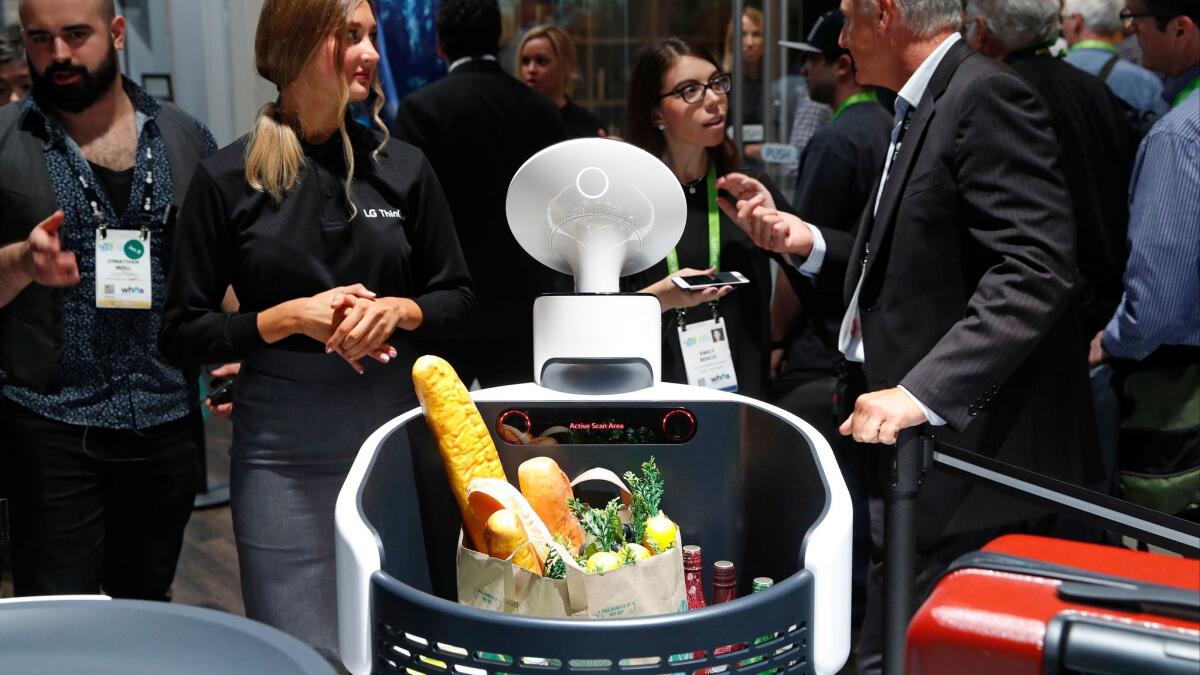
More to Read
Inside the business of entertainment
The Wide Shot brings you news, analysis and insights on everything from streaming wars to production — and what it all means for the future.
You may occasionally receive promotional content from the Los Angeles Times.


